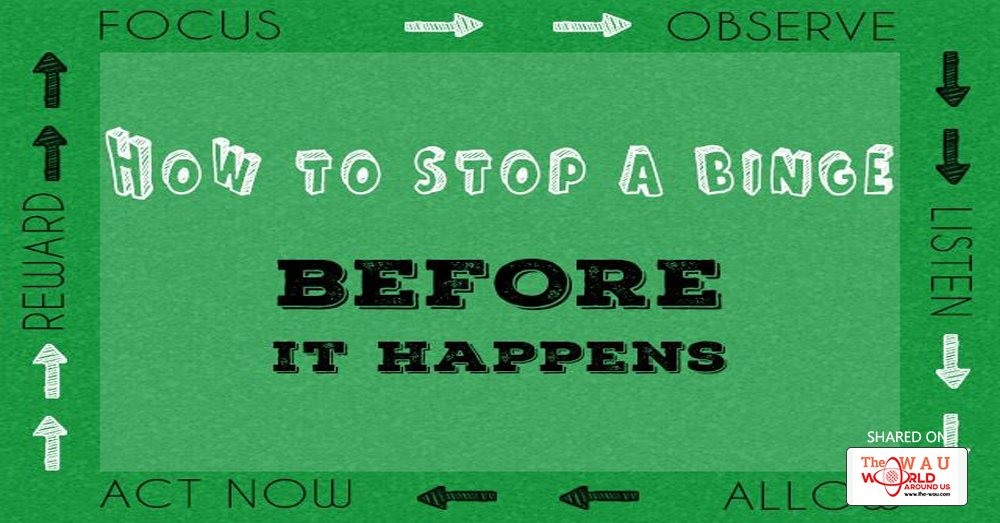For someone with binge-eating disorder, the urge to overeat can be overwhelming. And while the first few bites can sometimes feel good, shame, guilt, and regret can quickly follow. But it’s possible to stop a binge before it starts, or even once it’s begun.
Long-Term Strategies
Follow a regular meal plan. “The most important thing to do is to get on a regular pattern of eating,” says Doug Bunnell, PhD, former president of the National Eating Disorders Association. Dietary restriction and under-eating -- often in an attempt to lose weight or “make up for” a binge -- drive people to feel hungry, then overeat or binge, he says.
Focus on health, not weight. The desire to lose weight can actually keep someone stuck in a bingeing cycle, Bunnell says. Focus on overall fitness and health rather than pounds.
Learn your triggers. “For me, a binge never really began with the first compulsive bite, but much earlier. It began with my not taking care of myself in some other way,” says Jenni Schaefer, co-author of Almost Anorexic: Is My (or My Loved One’s) Relationship with Food a Problem?
Learn what feelings, moods, interactions, and relationships drive your urge to binge, Bunnell says. A therapist can help you ID your triggers. Once you do, “you want to reframe the problem from being one of ‘I’m hungry’ to one of ‘I’m feeling ignored or unimportant’ or whatever it might be, and line up the solutions for that.”
Remove temptation. “Don’t keep foods that you like to binge on,” advises Leslie Anderson, PhD, training director at the Eating Disorders Center for Treatment and Research at University of California, San Diego.
Look for other ways to feel good. People with binge-eating disorder often have underlying depression, Bunnell says. He suggests seeking out non-food sources of pleasure. For example, try something you enjoyed as a kid -- perhaps an art class. And get more physical activity. “It’s actually one of the most powerful treatments we have for improving mood, and that’s often a critical part of helping people manage the binge eating,” Bunnell says.
When the Urge Strikes
Recognize you’re in the danger zone. “The first step is that you actually have to notice the urge” before you find yourself in front of a plate of food, Anderson says. Becoming very aware of your own moods and anxieties will help.
Change your mindset. Once you are good at noticing the urge, come up with ways to change gears. Anderson recommends keeping a list of your top goals and values on the fridge, and ask yourself whether bingeing would be consistent with them.
Distract to delay. “People often feel like they go from 0 to 60, right from urge to behavior,” Bunnell says. “Try to stretch out the time a little bit.” If you can delay bingeing long enough, you may be able to avoid it. Count your breaths, do yoga, take a walk, listen to music, or call a friend.
Stop a Binge in Progress
Practice "urge surfing." Learn and accept the cycle of your urge to binge.“If you think about a wave, it goes up, up, up, and at some point it starts to go back down,” Anderson says. When you binge, you are acting on the urge to make it stop. Urge surfing is following the urge all the way up and down, knowing it will eventually end if you ride it out.
Turn off the auto pilot. Even if you start to binge, it doesn’t have to continue, Bunnell says. “You can stop after the fourth or fifth bite, and people do get better at doing that.” A key, he says, is to slow down and see the binge as a set of multiple decisions, not one big decision.
Russell Marx, MD, chief science officer at the National Eating Disorders Association, says, “I think it’s good, if you’re starting a binge, to ask yourself, ‘What is continuing this behavior going to accomplish right now? What’s it going to do for me?’”
Anderson says, “Remember that more food isn’t necessarily more enjoyable. There’s a point of diminishing returns.”
Share This Post












